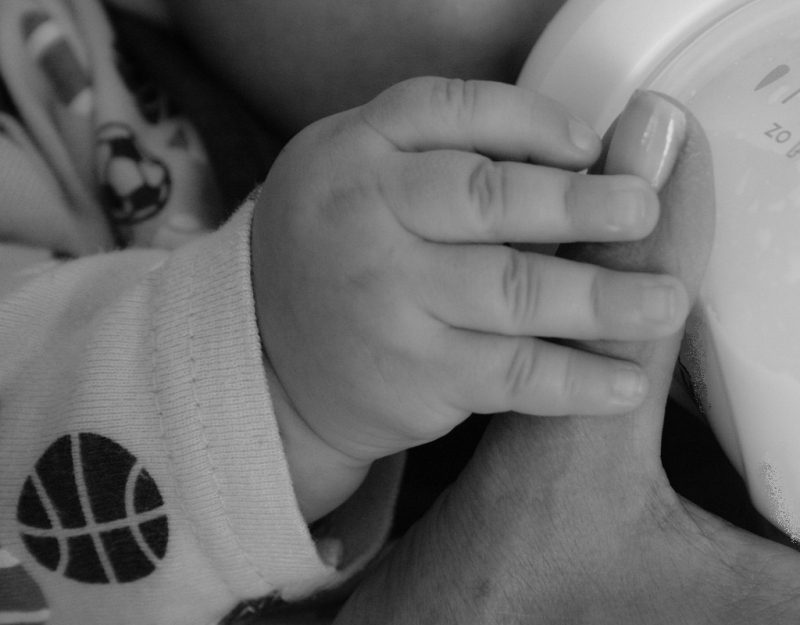Whether you should follow guidelines based on average-sized babies or give your baby as much milk as they want, will depend on your baby’s stage of development. You will not be able to follow the same feeding recommendations for newborns as you would for babies over the age of four months, so to help you out, here are some key differences between the development stages of babies, and how to tell when they’ve had enough milk:
Newborns
You can’t completely rely on a newborn baby’s ability to control the amount of milk they have, as their sucking reflex will allow them to keep feeding and overfill their tummy. This risk is heightened if the flow of milk is fast, and a newborn’s brain isn’t able to register that they are full until they’ve already had far too much. For these reasons it’s not always wise to give a bottle fed newborn as much as she’s willing to take.
Minimise the risk of overfeeding a newborn by:
- Only feed every three to four hours (timed from beginning of feed)
- Get your GP or plunket nurse to help you calculate a set amount and only offer that much
- Select a teat that enables your baby to feed slowly, in around 20 to 40 minutes.
From four months on
Your baby can now control their sucking as the reflex has disappeared, so he will be better able to control how much he drinks. He’s also more equipped to decide if he does not want to feed or has had enough milk. You will be able to tell that your baby is disinterested, or has had enough, if he:
- Stops sucking or refuses to start
- Refuses to seal his lips around the teat
- Pushes the teat out of his mouth with his tongue
- Pushes the bottle away with his hands
- Clamps his mouth shut and turns his head away from the bottle
- Fusses and turns his head from side to side if you try to persist with the feed
- Cries and arches back (to distance himself from the bottle) if you ignore her earlier cues and try to make her feed
- Some babies will fall asleep when they have had enough milk
Your baby should now be able to self-regulate his intake to meet his needs adequately, if you let him. Parents are there to offer sufficient quantities of breastmilk or formula, but it’s the baby’s right to decide how much he will take.
Do not try to force more milk into your baby than he is willing to consume, as it will make it an unpleasant and stressful experience for both of you. Babies can also develop a behavioural feeding aversion when they are repeatedly forced to feed.
The World Health Organisation recommends exclusive breastfeeding for the first 6 months of your baby’s life, followed by the timely introduction of safe and adequate foods. WHO recommends continued breastfeeding for the first two years and beyond. Breastfeeding provides babies with the best nutrition and is preferred when possible. Always follow professional advice before using an infant formula. Introducing formula can have a negative effect on your milk supply and be very difficult to reverse. Proper use of an infant formula is important to the health of the infant, only use as directed.







Leave A Comment
You must be logged in to post a comment.